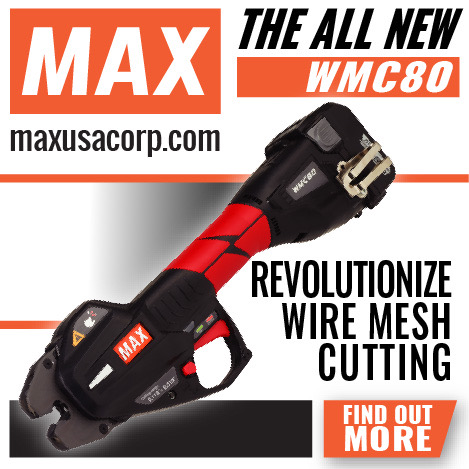Exclusive: Rigging supplies distributor emulates Amazon model
New model speeds delivery and expands selection.
 |
 |
Meeting construction deadlines and reducing downtime are critical whether the jobsite is a high-rise building or a highway infrastructure project. To safely and efficiently move heavy equipment and building supplies across the worksite requires not only cranes but also a variety of specialty lifting, pulling, and tie-down products to control and secure the load.
At any time, progress on a construction project can come to a grinding halt when something unplanned occurs. For instance, a piece of equipment may need to be installed, repaired, or replaced – and specific equipment, such as a crane sling of a certain type, dimension, or construction must be available immediately to get the job done.
More frequently, purchasing rigging equipment is left to the last minute, often because it is an afterthought, or because it is unclear what specifications the rigging requires for the job. Nevertheless, with the project deadline looming, site supervisors cannot waste time querying suppliers that cannot deliver the goods right away.
Traditionally, however, the industry has looked to a variety of supply channels. This has included rigging houses to supply wire rope slings, other vendors for hardware like chain and cable, and still others for hoists or rope, and even more vendors to supply cargo control items.
The problem is that this scattered approach to ordering slows and complicates the process, delaying crucial orders from several days to a week or more. It puts essential items like wire slings at the mercy of the typical rigging house, which only begins fabricating the equipment after the order has been placed, then must ship it. Valuable time is lost as the rigging house reacts to the order, gathers necessary materials, and constructs the rigging.
Now to help make construction professionals more competitive, proactive rigging suppliers are following a new more responsive purchasing model. To this end, they are offering a host of vital capabilities including “Amazon-style” variety, emergency response, expert engineering support, and U.S.-only as well as international sourcing.
One-Stop, Certified Rigging Item Shopping and Same-Day Shipping
In response to the construction industry’s need to streamline purchasing, a growing number of suppliers are implementing an “Amazon-style” approach to inventory by stocking the vast majority of required rigging items in-house, ready to ship. This enables busy construction professionals to order all of their rigging-related equipment without going to multiple vendors.
“The trend is toward simplifying construction purchasing by offering the entire spectrum of products used for lifting, pulling and tying down including wire rope, chain, fittings, hoists, cordage, as well as a variety of slings and custom made lifting products,” says Tim Murphy, owner of Murphy Industrial Products, a national wholesaler of construction rigging products.
This one-stop model prioritizes stocking the variety, quantity, and selection of construction rigging supplies most commonly required, such as slings, chains, hoists, and steel cable, so they can be shipped immediately. Instead of having to go to several vendors to complete the order, the goal is to supply everything needed in one transaction.
This requires having all needed part numbers and specifics available at the point of order, whether by phone, website, or catalog. It also requires having all products under one roof, logistically prepared to ship nationally as well as track without delay.
“Most rigging shops wait until they get the order to begin fabricating the item before shipping it out, but that can cause delays of 1-5 days, depending on how complicated the material is,” says Murphy.
Because up to 10,000 in-stock construction rigging items are held in inventory by some wholesalers like Murphy Industrial Products that implement the Amazon style approach, same day shipping can be offered on up to 80% of typical orders.
Rush and Emergency Response
Without required rigging equipment, a construction crane can sit idle along with much of the construction crew, costing perhaps tens of thousands of dollars per day in equipment rental, unproductive labor, and project delays.
“When we get a request, customers typically want their construction items that day or the next,” says Dan Kendrick, owner of Coastal Resources Group, a south Texas based construction item distributor. “We need quick turnaround or we will lose the order.”
While any vendor can rush a single order, traditionally few have organized their processes to expedite orders for the majority of their customers, including rush and emergency situations.
Now some construction rigging suppliers are streamlining their entire process from order to delivery around speed of response. While some websites are set up to enable one-click shopping for routine items, for instance, some rigging suppliers for the construction industry go well beyond this approach.
“When a rapid response is required, too often it may take a construction supplier several hours to reply to a customer request,” says Murphy. “If a supplier has their act together, its service reps should be able to respond to a request within minutes to an hour. They should know what their customers will likely need, and have it in stock, ready to ship for same or next day delivery.”
Beyond this, a responsive supplier should be reachable by a variety of methods to best accommodate customers’ needs in the field.
“In a true rush or emergency, I may not be able to place a formal purchase order,” says Kendrick. “Because there’s no telling where I may be when I may need to place an order, it’s important that I can text, call, or email a picture of what I need.”
Expert Guidance and Engineering Support
Because construction worksites and workloads will vary and safety is critical, expert guidance and engineering support will be necessary at times to provide the optimal rigging equipment for the job.
Often site supervisors and purchasers do not know what rigging equipment specifications they need in terms of weight capacity, configuration, and options.
“When you are lifting building materials that can weigh several tons, ordering slings to ASME B.30.9 standards, for instance, is vital for safety,” says Murphy. “For a variety of reasons, it’s common for customers to have questions about their rigging when they are unsure what they need to get the job done.”
According to Murphy, knowledgeable and responsive inside sales staff is a good start in these cases, but engineering expertise may be required as well.
“If you’re dealing with slings of an unusual size, shape, capacity, an unbalanced load or other complications such as varied leg lengths, for instance, it is important to get help from an engineer,” says Murphy, whose onsite engineer is a former wire rope designer and has 40 years of experience solving unique rigging challenges.
Kendrick appreciates such engineering proficiency and has sought it out on many occasions.
“Rigging equipment may need to be engineered to meet certain capacities, tolerances, or configurations for safety and specific jobsite needs,” says Kendrick. “I’ve benefited from onsite engineering expertise on many occasions.”
Going Beyond Typical Stock Items
While there is a trend to stock all construction rigging equipment the industry needs under one roof, this does not mean that it cannot be modified. When equipment customization is required, such as in length, size, or capacity, this can be done quickly to suit unique jobsite circumstances.
According to Murphy, custom rigging is most commonly required when rigging length and capacity vary, but other factors such as different finishes (including galvanized and stainless) can also play a role depending on the application. “No matter how routine or custom the rigging, all products should be certified and all slings fabricated to exacting ASME B.30.9 standards for safety,” he says.
Not only does the new “Amazon-style” purchasing model require rigging suppliers to carry thousands of parts on demand, ready to ship, but also it allows the choice of sourcing parts domestically or internationally, depending on needs.
Sometimes a construction job specifies only U.S. sourcing of rigging products and equipment, such as for certain government-related contracts. Other times international suppliers may be necessary to meet other construction project criteria such as geographic location or low-bid cost.
Whatever the case, working with a construction rigging supplier with a full-range of domestic and international sources can be an important final consideration in selecting a supplier with the flexibility to meet contract requirements.
As the construction industry struggles to adapt to jobsite surprises and ever-tighter construction schedules, the new one-stop shop model that prioritizes wide selection, fast delivery, as well as customization will help industry professionals stay one step ahead of the competition. CS
For more info, phone 866-849-8073; email sameday@murphyindustrialproducts.com; visit www.murphyindustrialproducts.com; or write to Murphy Industrial Products, 600 N. Shepherd Dr. #303, Houston, TX 77007.
















